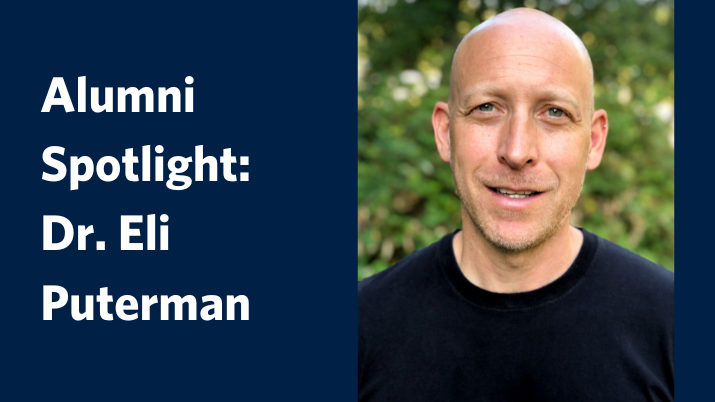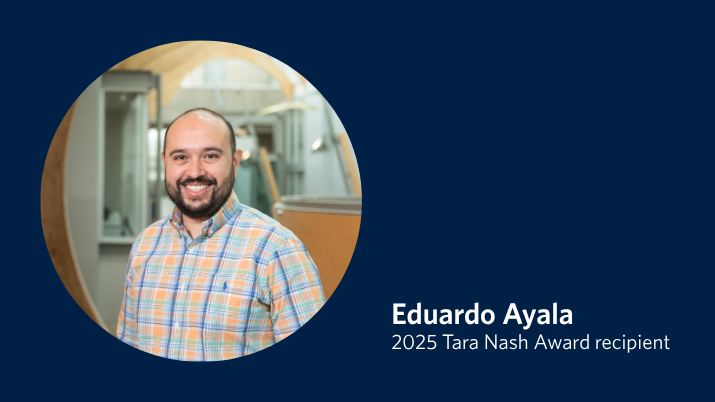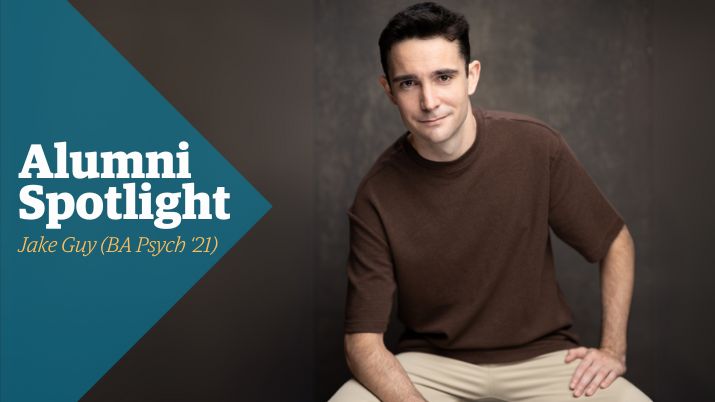

Dr. Eli Puterman, Associate Professor and the Canada Research Chair in Physical Activity and Health at the UBC School of Kinesiology
Dr. Eli Puterman (MA ‘04, PhD ‘09) reflects on his alumni journey and how it shaped his groundbreaking research on physical activity and immune system aging.
Dr. Eli Puterman is currently an associate professor and the Canada Research Chair in Physical Activity and Health in the School of Kinesiology at UBC. Dr. Puterman was recently elected as a member of the Royal Society of Canada’s College of New Scholars, Artists and Scientists. He completed his MA in Clinical Psychology from 2002 to 2004, and his PhD in Health Psychology from 2004 to 2009. His supervisor throughout graduate school was Dr. Anita DeLongis.
Dr. Puterman’s research develops, evaluates, and disseminates physical activity initiatives and programs among unsuccessfully reached populations and highly stressed individuals. Additionally, his work seeks to broaden our understanding of how stress accumulates across the lifespan to impact health and wellbeing, and determine underlying biological (e.g., cellular aging) and psychological (i.e., cognitive, affective) mechanisms through which cumulative stress may do so, and the many ways physical activity and exercise can offset these impacts.
Read our Q&A with Dr. Puterman about his journey at UBC, his inspirations, his research interests, and more.
Why did you choose to study psychology at UBC?
I was very excited by Dr. DeLongis’ work examining how social relationships, especially intimate relationships, impact how we appraise and cope with life stressors on a daily basis. I was intent on applying her ideas to queer relationships. While we ultimately did not complete that project, it brought me to work with Dr. DeLongis. Dr. DeLongis encouraged me to capitalize on my curiosity, hone my skills for scientific discovery, and sharpen my critical lens. My graduate training under her supervision, and in general at UBC’s psychology department, truly set me on a path of success.
When you were a student, was there anything or anyone who inspired you?
I was inspired by all the fantastic research happening within the health realms in the psychology department at UBC.
“Drilling down into how psychosocial stress impacts health and wellbeing, deep into our cells, really thrilled me!”
It made me want to spend my whole life researching these questions, and finding ways to improve the health and wellbeing of people with long-term experiences of stress (which is part of what I research now).
In your experience, how does the value of a psychology degree translate into the real world?
Well, my psychology degrees were at the graduate level, so they fully launched my career as an academic. One thing I have noticed about students from undergraduate psychology programs who join my lab is that they have a deep understanding of the underlying biological and psychological mechanisms of why we do what we do as humans (and as animals). In the long run, this type of knowledge really helps (in a positive way, hopefully!) how we navigate our work environments and relationships, regardless of the careers we choose.
In your own words, how has UBC shaped your career?
Well, I returned to UBC in 2015 for my faculty appointment after a 6-year stint at the University of California San Francisco, so UBC is my career! The training and knowledge I gained in health psychology and statistics at UBC allowed me to integrate myself seamlessly as a postdoctoral fellow at UCSF’s Centre for Health and Community in the Department of Psychiatry, a top-rated health psychology postdoctoral training program.
Dr. Puterman invites students interested in the effects of physical activity and exercise on mental and physical health in highly stressed individuals to check out the interesting studies and positions in the Fitness, Aging, & Stress (FAST) Lab.
“My team of postdoctoral and graduate mentees are wonderful, supportive humans, and we do great science.”
Read more about Dr. Puterman’s research on physical activity and immune system aging:
Read more about Dr. Puterman’s induction as a member of the Royal Society of Canada’s College of New Scholars, Artists and Scientists:


